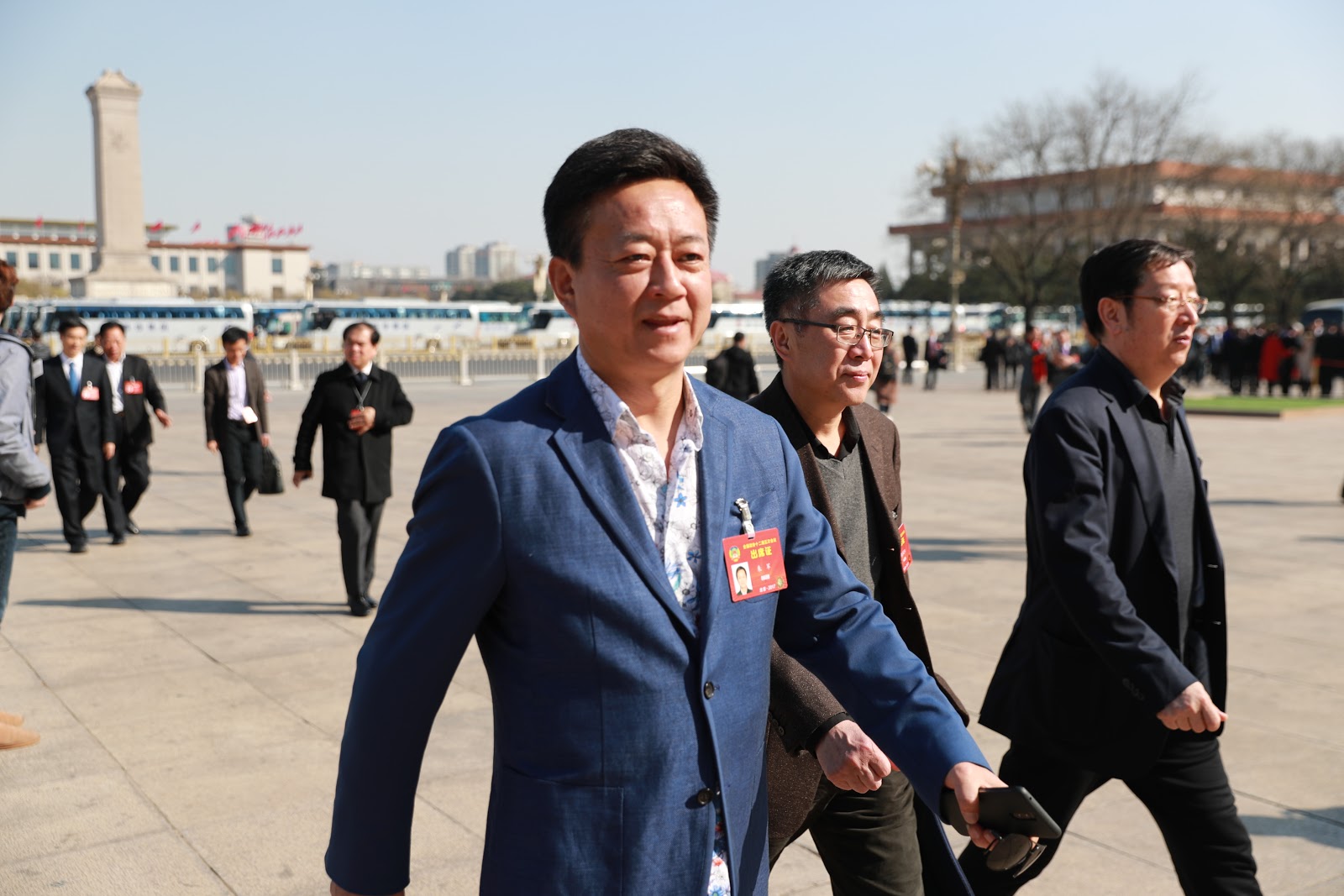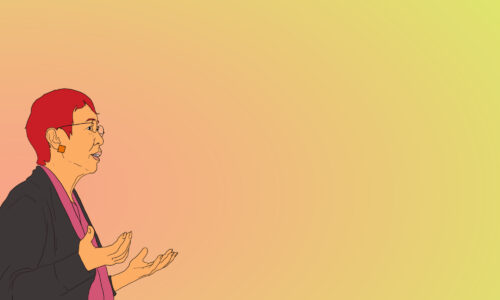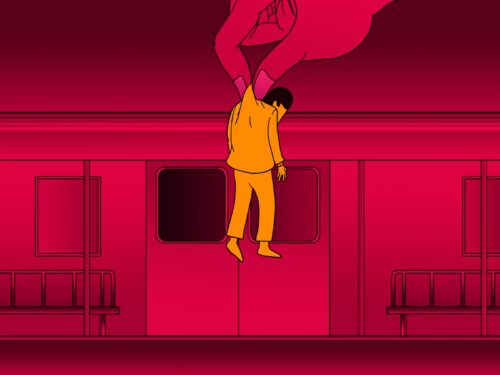Zhu Jun breaks silence to dispute sexual harassment allegations, declaring himself ‘the real victim’
The legal suit isn’t over yet, but the accused perpetrator of China’s most prominent #MeToo case says he did nothing wrong.

Under mounting pressure, prominent Chinese TV presenter Zhū Jūn 朱军 has for the first time personally addressed sexual assault allegations made against him by former intern Zhou Xiaoxuan, declaring flatly that he never had “physical contact” with the accuser and that he was a victim of “smearing.” (Zhou has not revealed the Chinese characters of her name but is known in China by her nickname Xiánzǐ 弦子.)
Zhu’s response was part of an article (in Chinese) published on December 21 by Weibo user “A journalist who is a small point of rationality” (一个有点理想的记者), who describes himself as a “media person” and “experienced social commentator” in his bio. In what he called an exclusive interview with Zhu, the self-proclaimed journalist asked him directly whether he had sexually assaulted Xianzi in 2014, when she was interning at the state broadcaster China Central Television (CCTV).
“I absolutely never touched her. I didn’t even know her. As a public figure, it’s literally impossible for me to sexually harass or assault someone in public,” Zhu said. “This is simply a smear.”
When asked why it took so long for him to publicly refute the allegations, Zhu explained that “disciplinary restrictions from the national broadcaster” required him to remain silent, but he never elaborated on what restrictions he was referring to.
“I had no choice. I was in distress. As a TV host, I am very cautious about my image and behavior because people watch my actions closely,” he said. “I always believe in my organization and in the law. With so many witnesses and so much key evidence, I will prove my innocence in the end. I am the real victim.”
Zhu also revealed that he never sought reconciliation with Xianzi after the alleged incident, and that he never pressured law enforcement agencies to harass the alleged victim and coerce her to drop the accusation. “Look, I don’t hold any administrative posts at the TV station. I’m just a TV anchor,” he said.
In the summer of 2018, inspired by the courage of women who came forward with their allegations against Hollywood film producer Harvey Weinstein, kickstarting the global #MeToo movement, Xianzi took to Chinese social media to share harrowing accounts of her harassment by Zhu. In the 3,000-word essay, the then 25-year-old disclosed that she had no choice but to go public with her story after she faced disbelief and hostility when calling for the authorities to investigate.
A few weeks later, when Zhu fired back by suing Xianzi for damaging his reputation and mental well-being, Xianzi countersued on the grounds that Zhu had infringed upon her “personality rights,” which under Chinese law broadly refer to rights relating to an individual’s health and body. In May this year, after China passed a new civil code, which, for the first time in Chinese history, legally defined sexual harassment and provided a liability framework for it, Xianzi’s lawyers adopted a new cause of action for her case.
Earlier this month, Xianzi’s lawsuit opened in a Beijing court. Zhu did not appear for the event. After more than 10 hours of testimony, the court adjourned around midnight on December 2 without a verdict.
In the new interview, Zhu noted that it was “his right to not show up at court” given that his lawyer had compiled enough evidence to prove his innocence. “I never spoke up on the issue in the past two years. Other than the disciplinary restrictions that prevented me from doing that, this is also me paying respect for the law. I want an outcome, too,” he said.
Throughout the article, the pseudonymous author explicitly takes Zhu’s side and shows a high level of mistrust and skepticism toward Xianzi’s allegations. Claiming that Xianzi’s story is factually flawed, the author portrays her as an attention-seeking activist using “scandalous allegations” to become “the most influential figure in China’s feminist movement,” who “commented on social issues regularly, attended feminist events at home and abroad, and gained widespread support.”
At various points in the article, the author stresses Xianzi’s close relationships with foreign news publications and nonprofit organizations, implying that the alleged victim leveraged the attention surrounding her legal case to “promote some sort of ideology.” He goes on: “If Zhu were as predatory as Xianzi claimed, there would be more victims coming forward with accusations. But that never happened,” the author writes. “We’ve seen so many cases of people’s kindness being taken advantage of for ulterior motives. We should have learned our lesson.”
This morning, Zhu, who deleted all of his Weibo posts two years ago, reappeared on the platform. He shared the article with an accompanying comment (in Chinese) that reads, “I withstood an enormous amount of humiliation in the past two years. I remained silent because I believed in the law and I knew I was innocent at the end of the day. I am saying unequivocally, I never, never touched that lady.”
The article and Zhu’s response have — to some extent — changed a number of people’s perspectives on the matter, with many of them starting to question if they had prematurely judged, sentenced, and convicted Zhu under the influence of the #MeToo movement. “I am a woman and now I find Xianzi’s story hard to believe. Given her close ties with foreign forces, we should start questioning her motives,” a Weibo user wrote.
Despite the latest development, many people on the Chinese internet still rallied around Xianzi and showed unwavering support for her. They argued that Zhu’s aggressive effort to position himself as the victim and smear the reputation of Xianzi was a tactic commonly used by perpetrators of wrongdoing. “The lawsuit is not over yet. But it seems like Zhu has already embarked on a full-throttle campaign to clear his name and make a comeback,” a Weibo user commented.
In a lengthy article (in Chinese) published today, Xianzi, again, recounted the alleged assault in detail and reiterated her determination to achieve full justice. “I will never give up on seeking justice at court and telling my story,” she wrote (in Chinese). “Since Zhu is willing to speak up now, I hope he will at least show up for the next hearing.”






